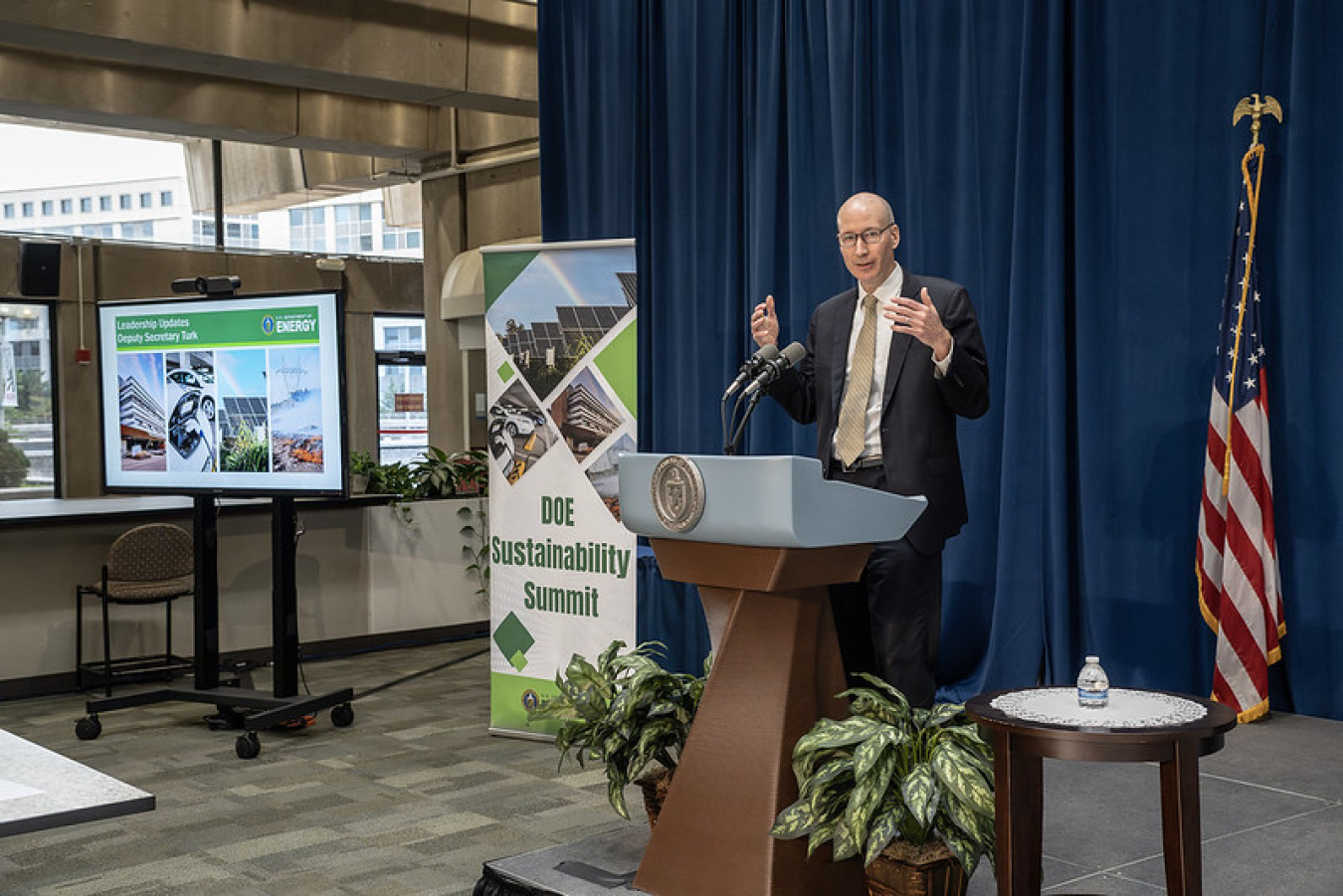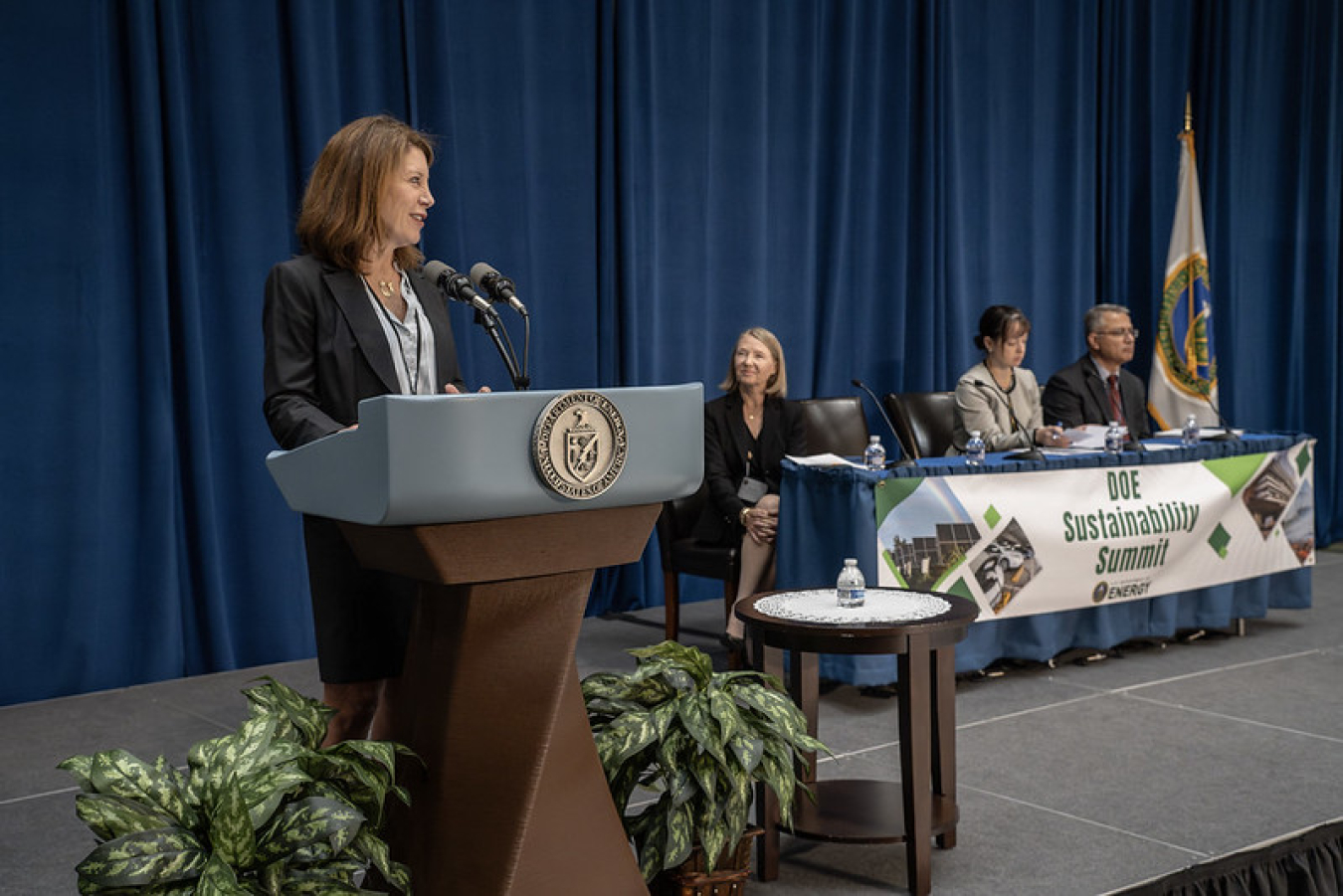On October 17th and 18th, DOE’s Sustainability Performance Office hosted its first annual Sustainability Summit at the James V. Forrestal Building in Washington, D.C. The Summit provided sustainability and climate professionals from across the DOE complex the opportunity to receive detailed information about innovative sustainability so1lutions and policies from a diverse set of stakeholders. Attendees also participated in a networking social to foster greater collaboration and share ideas across the Department.


Key Highlights
Sustainability Commitment
The Summit opened with an address from DOE’s leadership – Deputy Secretary David Turk and Chief Sustainability Officer Ingrid Kolb – reaffirming the Department’s commitment to sustainability. Federal Chief Sustainability Officer, Andrew Mayock, followed along with other DOE officials who underscored the importance promoting sustainability across the Department and the federal government.
Carbon-Pollution Free Electricity
Speakers from CEQ and GSA provided a government-wide perspective on CFE planning and implementation. DOE Program leadership shared how they use private-public partnerships and energy efficiency improvements to meet CFE performance targets.
Net-Zero Emissions Buildings
Panelists from CEQ, FEMP, and DOE’s National Laboratories focused on strategic planning for sustainable buildings with an emphasis on the Federal Buildings Performance Standard, electrification, deep energy retrofits, and implementation of net-zero strategies. DOE representatives shared best practices and success stores for planning across operations to achieve net-zero targets.
Zero-Emissions Vehicles
ZEV panelists shared information on fleet electrification efforts across the federal government, acquisition progress at DOE, as well as key challenges related to refueling infrastructure and electric vehicle supply equipment (EVSE) technology, efficiency, and performance.
Climate Adaptation and Resilience
Panelists provided updates on the government-wide Climate Adaptation Plan and DOE’s Vulnerability Assessment Summary Report. The National Oceanic and Atmospheric Administration, Argonne National Laboratory, and the National Renewable Energy Laboratory demonstrated climate tools, such as the U.S. Climate Resilience Toolkit and Customer Damage Function Calculator.
Updates and Alternative Financing
DOE representatives discussed the relationship between energy and environmental justice with a focus on DOE’s commitment to ensuring equitable energy policies and collaboration with Tribal communities. Panelists from program offices provided an overview of working groups, trainings, and various other opportunities available for attendees.
Thank you to those who were able to attend. Photos from the Summit can be found here . We look forward to seeing you at the 2024 DOE Sustainability Summit!

